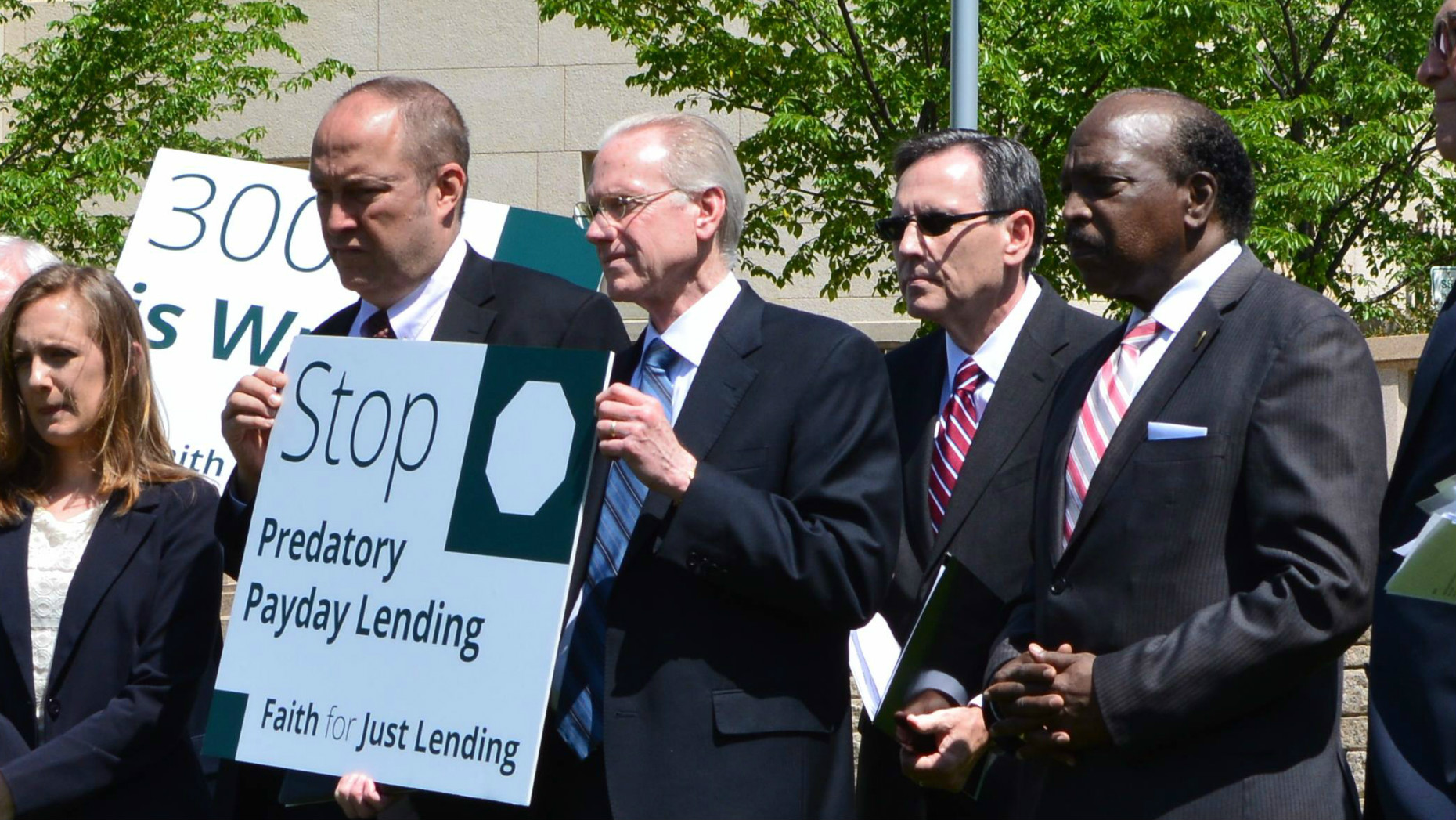Opponents of payday lending have a new ally in the fight against predatory lenders: Leaders from the 15.7-million member Southern Baptist Convention (SBC).
“We cannot sit by idly while some of the poorest among us are preyed on by people simply looking for a quick buck with no regard for the devastation they cause in the lives of others,” said Barrett Duke, vice president for public policy and research at the SBC’s Ethics and Religious Liberty Commission (ERLC).
The ERLC is one of the founding members of the newly-formed Faith for Just Lending coalition, which launched earlier this month. Among other members are the Cooperative Baptist Fellowship, the National Baptist Convention USA, the National Association of Evangelicals (NAE), the National Latino Evangelical Coalition, and the PICO National Network.
“While representing distinct institutions with different histories and practices, these faith organizations hold a shared conviction that Scripture speaks to the problem of predatory lending—condemning usury and teaching us to respect the God-given dignity of each person and to love our neighbors rather than exploit their financial vulnerability,” the group stated in a press release. “They believe that just lending is a matter of biblical morality and religious concern.”
The move is part of a growing trend. The NAE added predatory lending to its list of advocacy topics in 2014, and the SBC passed a resolution denouncing such loans. In January, faith leaders in Kentucky asked the state legislature to lower the interest rate cap on payday loans from 300 percent to 36 percent. And an evangelical pastor and a former Obama staffer have teamed up in South Dakota to promote a ballot initiative that would cap interest rates there.
More than 20,000 payday and car-title loan stores are operating across the country, and many of those lenders charge interest rates of 300 percent APR, Faith for Just Lending said. The result is “families being trapped in a cycle of debt.”
The diverse group agreed on a set of principles for addressing payday lending:
- Individuals should manage their resources responsibly and conduct their affairs ethically, saving for emergencies, and being willing to provide support to others in need.
- Churches should teach and model responsible stewardship, offering help to neighbors in times of crisis.
- Lenders should extend loans at reasonable interest rates based on ability to repay within the original loan period, taking into account the borrower’s income and expenses.
- Government should prohibit usury and predatory or deceptive lending practices.
While some of the faith leaders in the coalition have been working on the issue of predatory lending for several years, this was the first time they’ve coordinated their efforts, ERLC president Russell Moore told CT. The coalition aims to educate the public and church members about payday lending.
“What looks like a way out of a desperate situation leads to more poverty,” Moore said. "This is an issue that affects many people in Southern Baptist churches."
The new group will also push for more government regulation.
“The government has a responsibility to protect people from fraud and deception,” he said. “The people who are targeted by predatory lenders don’t have lobbyists in Washington.”
CT has covered the faith movement against payday lending, including the Church of England’s proactive move to open its own credit union in an attempt to drive payday lending out of business.
CT often explores economics and business, including how to gear the market so that people flourish and a brand-new model of Christian stewardship that can compete with China.
Her.meneutics covered fair trade in an unfair world and CT talked to Robert Sirico about how to get economics right by understanding what it means to be human.
[Image courtesy of the ERLC]









